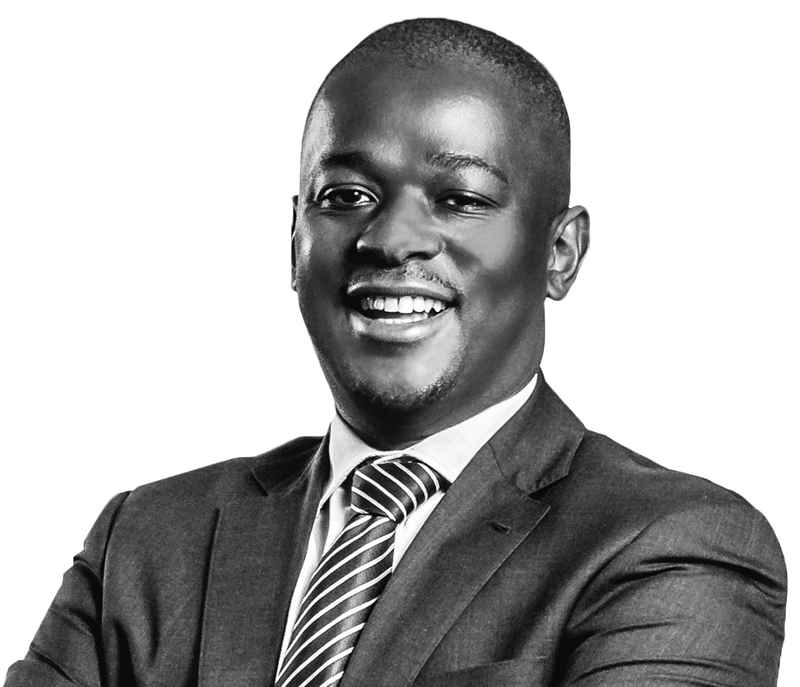Stay abreast of COVID-19 information and developments here
Provided by the South African National Department of Health
Sifting fact from fiction:
how to spot fake news
Fake news – attempts to manipulate citizens through the purposeful creation and dissemination of false information – is one of the biggest challenges facing society today. How do we know whether what we read is fake or real? How do we even know who to believe? Here we provide a few tips on how to spot fake news and sift fact from fiction.
Of course, deliberate attempts to mislead the public are not new. So what has changed? Why is there such great concern about it now? Well, for a start, US President Donald Trump has taken contempt for truth to a new level. When challenged on his claim that he had the biggest inaugural crowd ever, Trump adviser Kellyanne Conway said, ‘Don’t be so overly dramatic’ – these were just ‘alternative facts’. This is not just spin – it’s paying no heed to truth at all.
In South Africa, we’ve recently seen a proliferation of fake news polluting the political atmosphere. We’ve seen false claims against journalists, for example – such as Huffington Post’s Ferial Haffajee and Tiso Blackstar Group Editor-at-large Peter Bruce – as part of a systematic, well-resourced and extensive campaign to discredit them.
While dirty tricks have long existed, the internet and social media have made them far more powerful. On the internet, the absence of gatekeepers – the editors, sub-editors and fact-checkers who filter and verify claims before they air in traditional media – allows for great freedom of speech. But the flip side is that this includes the freedom to spread malicious, fraudulent and dangerous material.
A few decades ago, a professional journalist who disseminated unchecked information would have been blackballed by his or her peers. But for social media trolls, there are seldom adverse consequences. Here, anonymity is critical: culprits hide their identities, safe in the knowledge that they can’t be held accountable.
Elements of our traditional media have become highly partisan, actively supporting not just political parties but factions within them. Newspapers have often in the past taken a political standpoint that shapes their coverage. But the difference nowadays lies in the increased willingness of some to bend the rules of journalism: balance, fair play and accuracy.
At the same time, the space for independent, critical journalism that cares more about accuracy, verification, balance and ethical practices is shrinking under financial and political pressure. All South Africa’s newsrooms are less than half the size they were a decade ago. This means fewer filters and less fact-checking. The upshot is that, at the same time that social media demands greater vigilance, most newsrooms have fewer resources to sift the real from the fake.
Sanlam Private Wealth manages a comprehensive range of multi-asset (balanced) and equity portfolios across different risk categories.
Our team of world-class professionals can design a personalised offshore investment strategy to help diversify your portfolio.
Our customised Shariah portfolios combine our investment expertise with the wisdom of an independent Shariah board comprising senior Ulama.
We collaborate with third-party providers to offer collective investments, private equity, hedge funds and structured products.

Fake news sites are often started not for political reasons but to earn money. This was particularly evident during the US election. In one small Macedonian town, Veles (population 45 000), about 140 US election fake news sites were created, mostly spreading anti-Clinton stories. They weren’t doing it for Donald Trump, however, but to earn dollars on the pay-per-click advertising model. These fake news site creators had simply discovered that the easiest way to make money on the internet was to produce a website that spread horror stories about US presidential candidates.
In South Africa, most fake news sites are not financially motivated. Rather, they appear to be part of a well-resourced campaign to shift the news agenda away from #GuptaLeaks and to influence the ANC presidential race. UK firm Bell Pottinger, hired by the Guptas, was at the centre of this use of the ‘dark arts’ of public relations to ‘weaponise’ social media. The company has now been booted out of the UK’s Public Relations and Communications Association for ‘bringing the industry into disrepute’.
The real question is: what can be done? Bell Pottinger has been called to account by its peers and clients, but is this enough? After all, it does not deal with the youths of Veles or the individual in his kitchen weaponising his laptop. Fact-checking operations, which are springing up all over, are useful. Among these is Africa Check, which verifies claims made in the public arena.
Although some critics will use the ‘fake news’ issue to call for government regulation of the internet, this is likely to meet with resistance from those who (rightly) fear giving government a role in overseeing content. An alternative would be for government to regulate only so far as to limit anonymity, or to put the onus on internet service providers to maintain control. However, this would stretch only as far as our borders, leaving untouched those beyond government’s reach.
This means that individuals need to take steps to protect themselves against fake news. Here are a few tips:
Anton Harber is Caxton Professor of Journalism at the University of the Witwatersrand. He is the former Editor-in-chief of eNCA, and former Editor of Mail & Guardian. Anton was one of the guest speakers at the series of Sanlam Private Wealth client events held in major cities across South Africa.
Sanlam Private Wealth manages a comprehensive range of multi-asset (balanced) and equity portfolios across different risk categories.
Our team of world-class professionals can design a personalised offshore investment strategy to help diversify your portfolio.
Our customised Shariah portfolios combine our investment expertise with the wisdom of an independent Shariah board comprising senior Ulama.
We collaborate with third-party providers to offer collective investments, private equity, hedge funds and structured products.
Using your equity portfolio to secure credit allows you fast access to capital.
Sizwe Mkhwanazi has spent 14 years in Investment Management.

Have a question for Sizwe?
South Africa
South Africa Home Sanlam Investments Sanlam Private Wealth Glacier by Sanlam Sanlam BlueStarRest of Africa
Sanlam Namibia Sanlam Mozambique Sanlam Tanzania Sanlam Uganda Sanlam Swaziland Sanlam Kenya Sanlam Zambia Sanlam Private Wealth MauritiusGlobal
Global Investment SolutionsCopyright 2019 | All Rights Reserved by Sanlam Private Wealth | Terms of Use | Privacy Policy | Financial Advisory and Intermediary Services Act (FAIS) | Principles and Practices of Financial Management (PPFM). | Promotion of Access to Information Act (PAIA) | Conflicts of Interest Policy | Privacy Statement
Sanlam Private Wealth (Pty) Ltd, registration number 2000/023234/07, is a licensed Financial Services Provider (FSP 37473), a registered Credit Provider (NCRCP1867) and a member of the Johannesburg Stock Exchange (‘SPW’).
MANDATORY DISCLOSURE
All reasonable steps have been taken to ensure that the information on this website is accurate. The information does not constitute financial advice as contemplated in terms of FAIS. Professional financial advice should always be sought before making an investment decision.
INVESTMENT PORTFOLIOS
Participation in Sanlam Private Wealth Portfolios is a medium to long-term investment. The value of portfolios is subject to fluctuation and past performance is not a guide to future performance. Calculations are based on a lump sum investment with gross income reinvested on the ex-dividend date. The net of fee calculation assumes a 1.15% annual management charge and total trading costs of 1% (both inclusive of VAT) on the actual portfolio turnover. Actual investment performance will differ based on the fees applicable, the actual investment date and the date of reinvestment of income. A schedule of fees and maximum commissions is available upon request.
COLLECTIVE INVESTMENT SCHEMES
The Sanlam Group is a full member of the Association for Savings and Investment SA. Collective investment schemes are generally medium to long-term investments. Past performance is not a guide to future performance, and the value of investments / units / unit trusts may go down as well as up. A schedule of fees and charges and maximum commissions is available on request from the manager, Sanlam Collective Investments (RF) Pty Ltd, a registered and approved manager in collective investment schemes in securities (‘Manager’).
Collective investments are traded at ruling prices and can engage in borrowing and scrip lending. The manager does not provide any guarantee either with respect to the capital or the return of a portfolio. Collective investments are calculated on a net asset value basis, which is the total market value of all assets in a portfolio including any income accruals and less any deductible expenses such as audit fees, brokerage and service fees. Actual investment performance of a portfolio and an investor will differ depending on the initial fees applicable, the actual investment date, date of reinvestment of income and dividend withholding tax. Forward pricing is used.
The performance of portfolios depend on the underlying assets and variable market factors. Performance is based on NAV to NAV calculations with income reinvestments done on the ex-dividend date. Portfolios may invest in other unit trusts which levy their own fees and may result is a higher fee structure for Sanlam Private Wealth’s portfolios.
All portfolio options presented are approved collective investment schemes in terms of Collective Investment Schemes Control Act, No. 45 of 2002. Funds may from time to time invest in foreign countries and may have risks regarding liquidity, the repatriation of funds, political and macroeconomic situations, foreign exchange, tax, settlement, and the availability of information. The manager may close any portfolio to new investors in order to ensure efficient management according to applicable mandates.
The management of portfolios may be outsourced to financial services providers authorised in terms of FAIS.
TREATING CUSTOMERS FAIRLY (TCF)
As a business, Sanlam Private Wealth is committed to the principles of TCF, practicing a specific business philosophy that is based on client-centricity and treating customers fairly. Clients can be confident that TCF is central to what Sanlam Private Wealth does and can be reassured that Sanlam Private Wealth has a holistic wealth management product offering that is tailored to clients’ needs, and service that is of a professional standard.